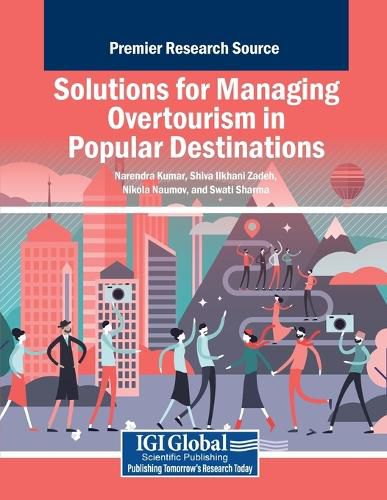Readings Newsletter
Become a Readings Member to make your shopping experience even easier.
Sign in or sign up for free!
You’re not far away from qualifying for FREE standard shipping within Australia
You’ve qualified for FREE standard shipping within Australia
The cart is loading…






This title is printed to order. This book may have been self-published. If so, we cannot guarantee the quality of the content. In the main most books will have gone through the editing process however some may not. We therefore suggest that you be aware of this before ordering this book. If in doubt check either the author or publisher’s details as we are unable to accept any returns unless they are faulty. Please contact us if you have any questions.
Overtourism occurs when destinations face excessive visitor numbers, leading to environmental harm, cultural erosion, and strain on local resources. Natural sites like Maya Bay and the Great Barrier Reef have suffered damage, while cities like Venice and Barcelona face overcrowding, rising costs, and displacement of residents. The phenomenon is fueled by globalization, social media, and budget travel, leaving many destinations unprepared for surging tourist numbers. Addressing overtourism requires sustainable practices, such as visitor caps, education campaigns, and dispersing tourists to lesser-known areas, alongside government regulation and community involvement. By prioritizing collaboration and responsible tourism, destinations can balance economic benefits with preserving their cultural and environmental heritage. Solutions for Managing Overtourism in Popular Destinations examines the multifaceted dimensions of overtourism and proposes innovative strategies to mitigate its adverse impacts. Through a blend of theoretical insights and practical approaches, it sheds light on the root causes of overtourism while charting a path forward toward more responsible tourism practices. Covering topics such as brand development, environmental conservation, and virtual reality (VR), this book is an excellent resource for destination managers and planners, tour operators and travel agents, tourism and hospitality students and educators, environmental scientists and ecologists, policy makers, urban planners, and more.
$9.00 standard shipping within Australia
FREE standard shipping within Australia for orders over $100.00
Express & International shipping calculated at checkout
This title is printed to order. This book may have been self-published. If so, we cannot guarantee the quality of the content. In the main most books will have gone through the editing process however some may not. We therefore suggest that you be aware of this before ordering this book. If in doubt check either the author or publisher’s details as we are unable to accept any returns unless they are faulty. Please contact us if you have any questions.
Overtourism occurs when destinations face excessive visitor numbers, leading to environmental harm, cultural erosion, and strain on local resources. Natural sites like Maya Bay and the Great Barrier Reef have suffered damage, while cities like Venice and Barcelona face overcrowding, rising costs, and displacement of residents. The phenomenon is fueled by globalization, social media, and budget travel, leaving many destinations unprepared for surging tourist numbers. Addressing overtourism requires sustainable practices, such as visitor caps, education campaigns, and dispersing tourists to lesser-known areas, alongside government regulation and community involvement. By prioritizing collaboration and responsible tourism, destinations can balance economic benefits with preserving their cultural and environmental heritage. Solutions for Managing Overtourism in Popular Destinations examines the multifaceted dimensions of overtourism and proposes innovative strategies to mitigate its adverse impacts. Through a blend of theoretical insights and practical approaches, it sheds light on the root causes of overtourism while charting a path forward toward more responsible tourism practices. Covering topics such as brand development, environmental conservation, and virtual reality (VR), this book is an excellent resource for destination managers and planners, tour operators and travel agents, tourism and hospitality students and educators, environmental scientists and ecologists, policy makers, urban planners, and more.